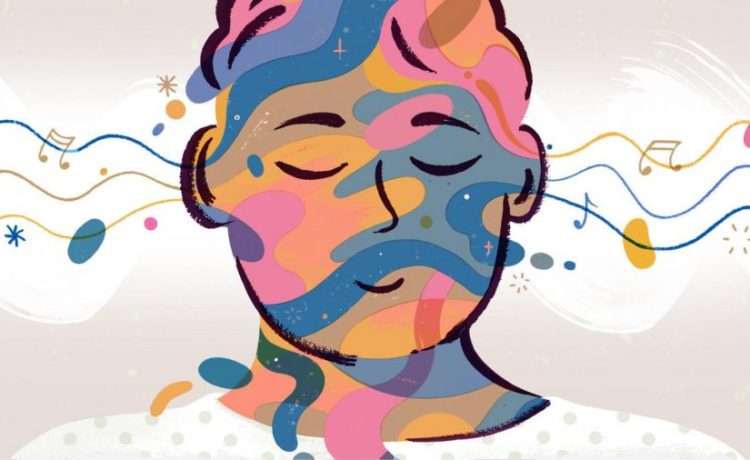Music is a complex arrangement of sounds that our brains process and interpret. When we listen to music, multiple areas of our brain are activated, including those responsible for auditory processing, memory, and emotion. Various aspects of music contribute to its emotional impact:
- Tempo – The speed of a piece of music can influence our energy levels and arousal. Fast-paced music tends to be more energizing, while slower tempos can be calming.
- Rhythm – A song’s underlying beat and pattern can affect our physical responses, often causing us to move or tap along unconsciously.
- Melody – A piece’s main tune can evoke specific emotions, with certain melodic patterns associated with happiness, sadness, or nostalgia.
- Harmony – The combination of different notes played simultaneously can create feelings of tension or resolution, contributing to a piece’s overall emotional tone.
- Lyrics – When present, a song’s words can directly communicate emotions and stories, adding another layer to the music’s impact.
Role of personal associations and memories
Our emotional responses to music are not solely based on its inherent qualities. Personal experiences and memories associated with specific songs or genres play a significant role in shaping our reactions. A particular song might evoke joy because it reminds us of a happy event, while another might trigger sadness due to its connection to a difficult time.
Music as a mood regulator
Many people use music as a tool to manage their emotions and moods. Music can be a powerful ally in emotional regulation, whether to uplift spirits during a challenging day or maintain focus during work. Using music to influence one’s emotional state is sometimes called “mood management” or “emotional self-regulation.”
Impact of music on stress and anxiety
Numerous studies have shown that listening to certain types of music can reduce stress and anxiety levels. Slow, relaxing music has been found to lower heart rate, blood pressure, and cortisol levels – all physiological stress indicators. This effect makes music valuable in managing stress-related conditions and promoting overall mental health.
Music and cognitive performance
The influence of music extends beyond just our emotions. It can also affect our cognitive performance. Background music can enhance focus, creativity, and productivity when chosen appropriately. However, it’s important to note that the effect can vary depending on the individual and the task. One can explore recent scientific publications and music technology forums to find more info on these cutting-edge developments.
Therapeutic power of music
Music’s profound impact on our emotions has led to its use in various therapeutic contexts. Therapists use both listening to and creating music as tools to help patient’s process emotions and improve their mental well-being.
Cultural differences in musical emotion
While music is often considered a universal language, the emotional responses it elicits can vary across cultures. Different societies have musical traditions, scales, and rhythms that may evoke distinct emotional reactions in listeners familiar with those cultural contexts. Brain imaging techniques provide insights into how music affects neural activity, while artificial intelligence analyses and even creates music designed to elicit specific emotional responses.













